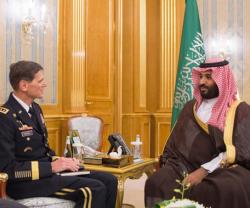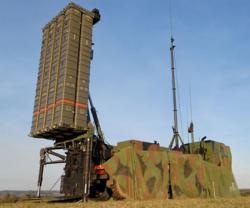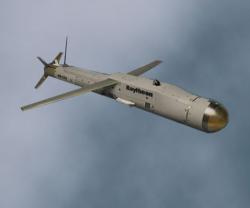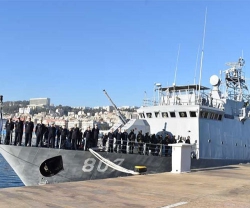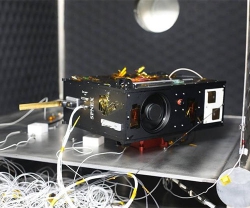South Korea and the United States said on Friday they will deploy an advanced missile defense system with U.S. military forces stationed in South Korea to counter North Korea's missile threat, drawing sharp and swift protest from neighboring China.
The Terminal High Altitude Area Defense (THAAD) anti-missile system will be used only to counter the threat from the North, the South’s Defense Ministry and the U.S. Defense Department said in a joint statement.
The selection of the location for the system could come "within weeks" and the allies were working to have it operational by the end of 2017, a South Korean defense ministry official said.
“South Korea and the United States made an alliance decision to deploy THAAD to USFK as a defensive measure to ensure the security of the South and its people, and to protect alliance military forces from North Korea's weapons of mass destruction and ballistic missile threats,” the joint statement said.
USFK stands for U.S. Forces Korea, which includes 28,500 U.S. troops based in South Korea.
“When the THAAD system is deployed to the Korean Peninsula, it will be focused solely on North Korean nuclear and missile threats and would not be directed towards any third party nations,” the statement said.
The decision to deploy the system is the latest move to squeeze the increasingly isolated North, which also involves a series of bilateral sanctions by Seoul and Washington as well as layers of U.N. sanctions.
China, which backed the latest U.N. sanctions against the North in March, objects to the proposed THAAD deployment in the South, as the system's radar can reach into its territory.
China’s Foreign Ministry said on Friday the system would destabilize the security balance in the region without achieving anything to end the North’s nuclear program.
“China strongly urges the United States and South Korea to stop the deployment process of the THAAD anti-missile system, not take any steps to complicate the regional situation and do nothing to harm China's strategic security interests,” it said in a statement on its website.
A joint South Korea-U.S. working group is determining the best location for deploying THAAD, which is built by Lockheed Martin Corp.
The group has been discussing the feasibility of the deployment and potential locations for the THAAD unit since February, after a North Korean rocket launch put an object into space orbit.
The launch was condemned by the U.N. Security Council as a test of a long-range missile in disguise, which the North is prohibited from doing under several Security Council resolutions.
North Korea rejects the ban, saying it is an infringement on its sovereignty and its right to space exploration.
North Korea in late June launched an intermediate range ballistic missile off its east coast in what was believed to be a test that showed some advancement in the weapon's engine system.
On Thursday, the North said it was planning its toughest response to what it called a “declaration of war” by the United States after the U.S. Treasury Department blacklisted the North’s leader Kim Jong Un for human rights abuses.


